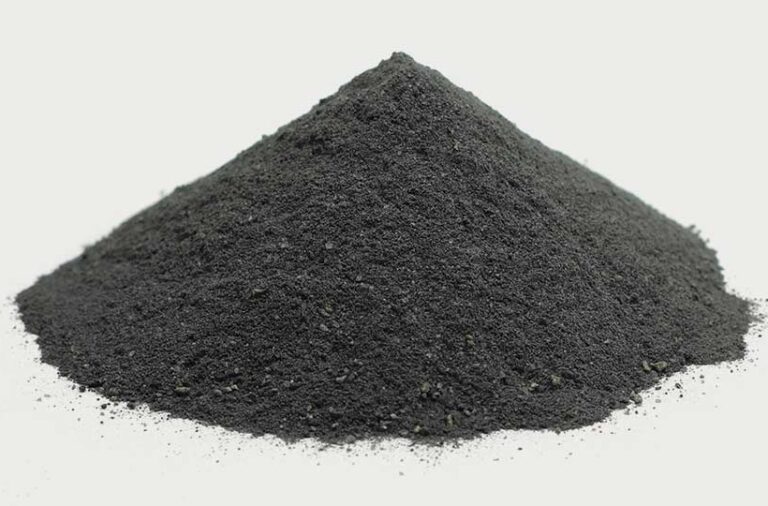Search High-Quality Nickel Powder Supplies from Atlantic Equipment

-
NI-124
NICKEL POWDER, SPHERICAL
- Formula 28 Ni 58.69
- Purity 99.9%
- Particle Size -100/+325 Mesh
-
NI-125
NICKEL POWDER, SPHEROIDAL
- Formula 28 Ni 58.69
- Purity 99.98%
- Particle Size +100 Mesh APS
-
NI-301
NICKEL ALUMINIDE POWDER, NiAl
- Formula NiAl 85.67
- Purity 99.9%
- Particle Size -325 Mesh
-
NI-303
NICKEL ALLOY POWDER
- Formula NiAl
- Purity 99.8% min
- Particle Size 11-45 microns
What is Nickel Powder?
Nickel powder is a finely divided form of nickel, a silver-white lustrous metal with a shiny appearance. Nickel powder is produced through various methods, including atomization, precipitation, and reduction techniques, and is characterized by its small particle size and high purity.
Nickel powder has an array of uses across numerous industries, including automotive, aerospace, electronics, and metallurgy. Thanks to its unique combination of corrosion resistance, high thermal and electrical conductivity, and the ability to be easily alloyed with other materials, it serves as a vital component in both manufacturing processes and end products. In particular, nickel powder is commonly used in the production of catalysts, batteries, sintered parts, and coatings.
What We Offer
We supply a range of nickel powders suitable for various industries and applications. From their role in the production of sintered rechargeable battery electrodes to their use as an ingredient in pigments, coatings, polymers, and much more, AEE’s nickel powders are available in a range of particle shapes, sizes, and degrees of purity. We also offer nickel oxide, nickel alloy, and nickel aluminide powders to meet different industrial and manufacturing needs.
We keep most of our nickel powder products in stock for convenient immediate shipment.
Why Turn to Atlantic Equipment
Since our origins in the 1960s, Atlantic Equipment Engineers has grown to become one of the leading suppliers of unusual electronic and high-purity materials. With clients across a broad range of industries and all over the world, we pride ourselves on ensuring our customers can access exactly what they need, when they need it.
We are an ISO-9001-certified company. This means that you can be assured that you will receive only the highest quality nickel powder products when you buy from us.
With a dedicated team available to advise and support you, unparalleled product customization options, safe and secure shipping, and a Blanket Delivery Service designed to save you time and money, AEE remains the superior choice for all metals, metal powders, and compounds.

Q: What is nickel oxide powder, and what are its uses?
Nickel oxide powder is a finely powdered form of nickel oxide (chemical formula NiO), a compound composed of nickel and oxygen, typically in a 1:1 ratio. It is known for its distinctive green color, but its exact shade varies depending on particle size. Nickel oxide is prized for its stability, high melting point (1955°C/3551°F), and electrical conductivity.
Nickel oxide powder has a variety of applications, and its properties make it a valuable commodity in both industrial and research settings. Ceramics, catalysis, battery materials, and pigments are just some of its common uses.
Nickel oxide powder comes in various types, each with its own strengths and applications. Nano-sized particles, spherical particles, and irregular shapes are just some of the common variations available.
Nickel oxide powder can present certain health and safety risks and must be handled with care and under proper protective measures.
Please consult the SDS for more information.
Q: What are the key nickel powder properties?
Nickel powder is composed of almost entirely pure nickel metal. It is an excellent conductor of both electricity and heat and, depending upon its type and grade, may also have magnetic properties. Nickel is highly corrosion-resistant, making it valuable for applications where exposure to moisture is a concern. It is also a malleable and ductile metal, meaning that nickel powder can be shaped and formed into various products using powder metallurgy techniques and can be sintered to create solid, dense components.
Nickel powder is available in a wide range of particle sizes and morphologies. These differences can significantly impact its suitability for various applications. Therefore, correct nickel size and shape selection are essential for success.
The purity of a nickel powder is also critical in many applications, with high-purity nickel powders required in industries such as electronics and aerospace. The absence of impurities can enhance nickel powder’s corrosion resistance and electrical conductivity.
Nickel can be easily alloyed with other metals, such as copper or chromium. This allows manufacturers and researchers to create new materials with specific properties.
Q: What are some nickel powder applications?
There are numerous nickel powder applications due to this highly versatile metal’s many desirable properties.
For example, nickel powder is a valuable component in powder metallurgy processes and can be used to create a wide range of products from automotive parts to electrical contacts. It plays a role in the manufacture of sintered metal filters and is used in various additive manufacturing methods, such as selective laser sintering (SLS), to create intricate metal parts and prototypes. In the automotive and industrial sectors, nickel powder is used to create self-lubricating sintered bearings for reduced friction and wear.
Nickel serves as a catalyst in various chemical reactions, and is particularly useful for hydrogenation processes in the petrochemical and food industries. In the aerospace industry, nickel powder is used in jet engine components due to its high temperature and corrosion resistance.
Nickel powder is employed in chemical industries for reactions involving nickel catalysts, such as the production of chemicals and petrochemicals.
In battery manufacturing, particularly nickel-metal hydride (NiMH) and nickel-cadmium (NiCd) batteries, it acts as an electrode material. In the electronics industry, its electrical conductivity makes it an ideal component in conductive inks, pastes, and surface-mount device (SMD) parts.
Nickel is also employed as a coating material, enhancing the corrosion resistance and wear resistance of automotive parts, aerospace components, and decorative finishes. In thermal spray processes, nickel powder is used to create thermal barrier coatings, protecting components from high-temperature environments. Nickel powders with particular particle sizes and characteristics are also used in the manufacture of pigments for paints, inks, and ceramics.
Certain types of nickel powders exhibit magnetic properties and are used in the production of magnetic materials, such as soft magnetic composites for transformers and inductors.
